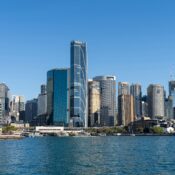
Ghana: Culture, Traditions & Identity
Culture & Heritage
Ghana, located on the west coast of Africa, is a nation rich in history, cultural diversity, and pride in its heritage. Known as the first sub-Saharan African country to gain independence (in 1957), Ghana has long been a symbol of Pan-Africanism and resilience. Its culture blends deep-rooted traditions with modern innovation and unity among its many ethnic groups.
Arts & Literature
Ghana has a vibrant arts scene that spans from traditional crafts to modern visual and performing arts. Colorful kente cloth, beadwork, and Adinkra symbols are prominent in Ghanaian visual expression, each carrying symbolic meaning and used in ceremonies and fashion.
In literature, Ghana has produced renowned writers such as Ayi Kwei Armah, Ama Ata Aidoo, and Kofi Awoonor, whose works explore identity, colonial legacy, and African pride. Storytelling is a cherished tradition, with oral histories passed down through generations by elders and griots (oral historians).
Music & Dance
Music is central to Ghanaian life, with styles ranging from traditional drumming to globally influential modern genres like highlife, hiplife, and Afrobeats. Instruments such as the talking drum, kora, and balafon are used in celebrations, storytelling, and spiritual rituals.
Dance is deeply tied to community, identity, and celebration. Traditional dances such as Adowa, Kpanlogo, and Agbadza are performed during festivals, rites of passage, and funerals, often accompanied by intricate drumming patterns and vibrant attire.
Cultural Symbols
Symbols such as the Black Star (from the national flag), Adinkra icons, and traditional stools represent leadership, strength, and heritage. The Black Star Gate in Accra is a prominent symbol of Ghana’s independence and Pan-African ideals.
Traditions & Daily Life
Ghanaian society is communal, respectful, and rooted in tradition. Daily life is often centered around family, work, faith, and social events, with a strong emphasis on hospitality and mutual support.
Work & Lifestyle
Ghana’s economy is diverse, with agriculture, mining, and service industries playing central roles. The workday often begins early, especially in rural areas. Cities like Accra, Kumasi, and Tamale are hubs of commerce and culture, while village life remains closely tied to ancestral land and community.
Family is at the heart of daily life. Extended families often live near one another, and elders are highly respected. Ghanaian society places a high value on politeness, greetings, and maintaining harmonious relationships.
Celebrations & Holidays
- Independence Day (March 6th) – A national celebration of Ghana’s independence from British colonial rule.
- Homowo Festival (by the Ga people) – Celebrated with music, food, and dances to mark a successful harvest.
- Aboakyer Festival (by the Effutu) – Features traditional deer hunting and rituals.
- Odwira Festival (by the Akan) – Celebrates cleansing and renewal of the community and ancestors.
Other celebrations include Christmas, Eid al-Fitr, Eid al-Adha, and numerous local festivals that reflect Ghana’s ethnic diversity and spiritual life.
Food Culture
Ghanaian cuisine is flavorful, spicy, and centered around starches and stews. Popular dishes include:
- Jollof rice – A beloved West African dish with tomato-based rice, often served with meat or fish.
- Fufu – A dough-like food made from cassava and plantains, usually eaten with soup.
- Banku and tilapia – Fermented corn dough with grilled fish and pepper sauce.
- Kelewele – Spicy fried plantains.
- Waakye – A mix of rice and beans served with various sides.
Meals are typically eaten communally, often by hand, and food plays a central role in gatherings and ceremonies.
Community & Social Life
Ghanaians are known for their hospitality and warmth. Community events, religious services, festivals, and funerals are central to social life and are often elaborate, celebratory affairs.
Traditional leadership — including chiefs and queen mothers — still plays a respected role in community governance and cultural preservation. Social cohesion is reinforced through mutual aid, storytelling, and shared values.
Language & Religion
Language
- English is the official language and is used in education, government, and media.
- Ghana is home to over 80 indigenous languages, the most widely spoken being:
- Twi (Akan)
- Ewe
- Ga
- Dagbani
- Fante
- Hausa (spoken widely in the north and among Muslim communities)
Language is a strong marker of identity, and many Ghanaians are multilingual, switching between local languages and English depending on the context.
Religion
Religious tolerance is a hallmark of Ghanaian society, with different faiths often coexisting peacefully within families and communities.
Ghana is a deeply religious country, with the majority of the population identifying as Christian (over 70%), including Pentecostal, Catholic, and Protestant denominations.
Islam is practiced by a significant portion of the population, especially in northern regions.
Traditional African religions, involving ancestral worship, nature spirits, and rituals, are still practiced and respected, often alongside Christianity or Islam in blended forms.
All Categories
Recent Posts
Vida Academy
Guyana: Culture, Traditions & Identity
Australia: Culture, Traditions & Identity
+1 (804) 663 8383
connect@cultureecounters.org



